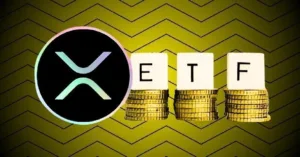A file containing information on transactions completed during a given time period. Blocks are the constituent parts of a blockchain.
Blocks are ordered sequentially, with new blocks added to the end of the chain. Every block contains a reference to the preceding block, in the form of a hash. This is one of the key security features of blockchain technology, making it virtually impossible to forge the ledger.In addition to a timestamp, the transaction record, and the hash of the previous block, every block contains the answer to a unique cryptographic puzzle. Solving this puzzle is a requirement for a new block to be added to the chain — a process called mining. Solving this problem attracts a reward, and so, in the case of the Bitcoin blockchain, every block also includes details of the addresses that have earned that reward. This is the first transaction recorded in each block.In Bitcoin, the difficulty of each problem is determined automatically by the network in an attempt to ensure that the target solution rate is achieved. The difficulty is adjusted by network consensus every 2,016 blocks.The first block in a blockchain is known as the genesis block. This is the only block in the blockchain that does not include a reference to a previous block.The block structure makes blockchains extremely difficult to hack or falsify. Every block in the blockchain contains the hashed reference to all of the preceding data on the chain. This means that in order to change any record on the blockchain, a malicious actor would have to change every single block. This is made virtually impossible by the fact that the blockchain is stored not in a single location, but in a decentralized manner on the local computer of every one of the blockchain’s users.



